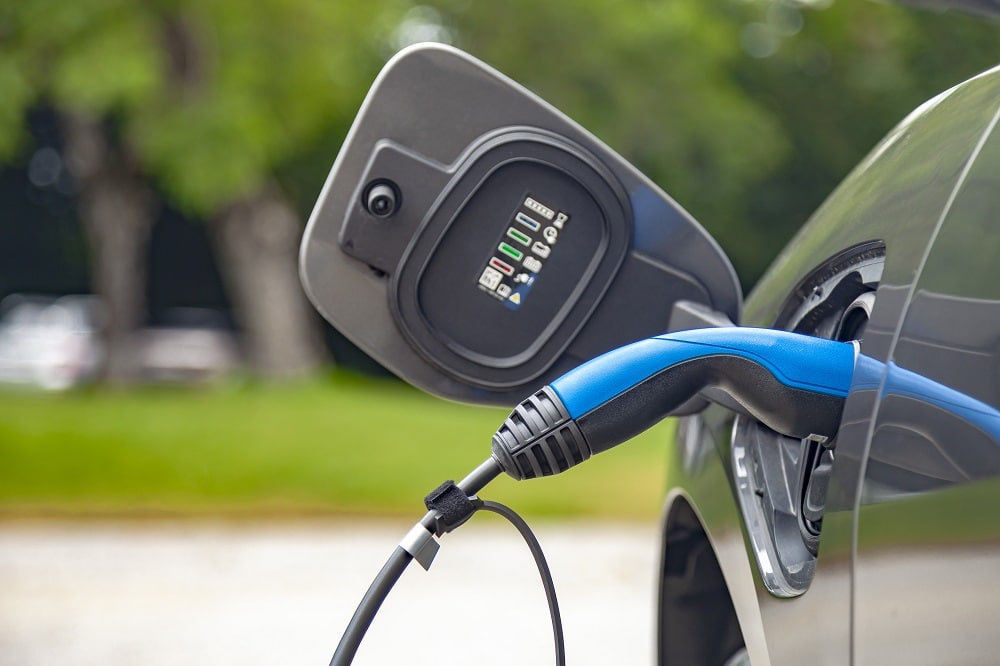“National regulations should favor reducing energy acquisition costs, which are high in Poland compared to other EU countries. For the decarbonization of manufacturing plants to succeed while maintaining the competitiveness of the industry, automotive energy should be characterized by a low carbon footprint, low price, and supply stability. If energy is to be green, affordable, and stable, it is essential, among other measures, to implement regulations supporting pilot programs in energy storage by manufacturing plants, or to introduce lower distribution charges for energy purchased by a manufacturing plant that also generates energy for its own needs and feeds surplus back into the network through reduced distribution charges,” says Jakub Safjański, Director of the Energy and Climate Change Department at the Confederation of Lewiatan.
Financial Support
“Achieving carbon neutrality in the automotive industry is a condition for its continued presence in the European value chain. Challenges related to emissions and environmental protection will have the greatest impact on the automotive industry in the longer term. Addressing them justifies the creation of a support program in Poland for the transformation of automotive industry manufacturing plants towards carbon neutrality,” says Paweł Wideł, President of the Association of Automotive and Industrial Employers. This includes support for projects that reduce energy demand in companies, such as modernizing and reconstructing electrical, gas, and heat energy distribution and consumption systems in enterprises, upgrading measurement and control systems, lighting systems in buildings and industrial areas, establishing renewable energy installations for the company’s own needs, or improving the energy characteristics of buildings in enterprises.
Ensuring Energy for Transport
It is also important to ensure electric energy for transport. Transport accounts for 22.3% of greenhouse gas emissions in the EU, with passenger cars emitting 12.8%, light commercial vehicles 2.5%, and heavy-duty transport and buses 5.6% of greenhouse gases. In this context, it is particularly important to introduce a system of direct support for the development of charging infrastructure – both public and private.
The development of charging infrastructure is crucial for the future of electromobility in Poland. Currently, the barrier is the insufficient infrastructure along motorways and main roads, and additionally, chargers are too slow. They most often have a capacity of 50 kW, which significantly slows down the charging process on the road according to current standards for new cars. Financial support for investment in charging stations will contribute to the dynamic development of the infrastructure not only in terms of quantity (number of charging points) but also in terms of quality (higher power of chargers). It is also necessary to consider enabling charging for electric commercial vehicles.
The Flywheel of the Polish Economy
The automotive sector is the second largest in the manufacturing industry, characterized by strong export orientation and stable growth over the past 20 years. It currently accounts for 8% of the national GDP. In 2022, the operating plants in Poland increased production by 9.6% compared to 2021. According to data provided by manufacturers, 420.1 thousand passenger and light commercial vehicles left all factories.
Direct employment in the production of vehicles, parts, and components employs 200,000 workers – more than 7% of all people working in the entire industry. Additionally, another 300,000 people work in sectors related to the automotive industry.
One of the Export Leaders
Often in a given region, it is the largest employer, and salaries are above the industry average. The automotive sector is also a leading export sector, with a value exceeding 150 billion PLN per year, and its share in the total export of the Polish economy is about 12%. The automotive industry has also attracted significant foreign investment for years.
The automotive sector currently faces several challenges, including those related to ongoing crises since 2020 caused by the Covid-19 pandemic, a shortage of components for vehicle production, disruptions in transport and logistics, and the war in Ukraine. This continues to pose dangerous consequences for the industry, such as the collapse of supply chains, rising raw material and energy prices, and high interest rates.
A joint effort of all stakeholders is necessary to ensure financially accessible mobility for all citizens and to ensure a sustainable transformation process of the automotive industry towards carbon neutrality, to avoid a shock collapse of the traditional industry while ensuring technological progress and innovation in the Polish automotive industry.
Sustainable Development
“National actions should cover environmental issues such as support for the decarbonization of mobility and industry, support for employees acquiring new skills and qualifications, and support for companies and workers during significant downturns caused by external factors beyond the control of entrepreneurs. It is crucial that new regulations, both at the EU and Polish levels, take into account the need for sustainable development, benefiting the environment and maintaining quality jobs, supporting investment in research and development, and supporting innovative manufacturing investments,” adds Jakub Safjański.
It is also important to facilitate dialogue between the automotive industry and the administration, the energy and fuel sector, science, local governments, SMEs, and other essential stakeholders, to understand mutual needs and limitations in order to propose optimal development paths for Poland.
